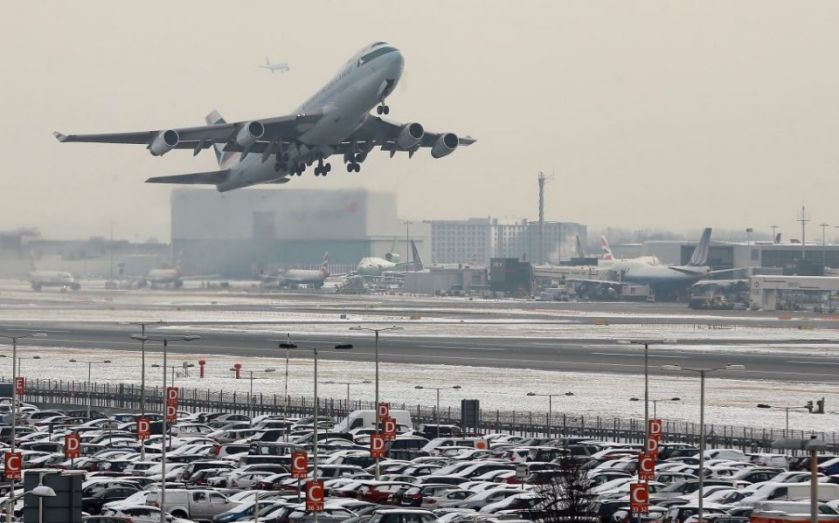London airport expansion: Parties must pledge action now before we fall further behind

Today, the Airports Commission’s public consultation on the three shortlisted proposals for airports expansion – which include a third runway at Heathrow, extending an existing Heathrow runway, or a second runway at Gatwick – at long last comes to an end.
By the time Sir Howard Davies publishes his final recommendations later this year, we will have been debating the merits of where to build just one new runway for the best part of three years. After months of discussion, it’s time for our political leaders to commit to action.
Around the world, the UK’s competitors have wasted no time when it comes to modernising their own airports infrastructure. They haven’t spent years debating where to site a new runway, but instead have got on with it and started building.
Let’s look at the evidence. New KPMG analysis published last week, commissioned by the Let Britain Fly campaign, shows that, by 2036, the world’s major cities are likely to have built over 50 new runways, providing enough capacity for an additional 1bn air passenger journeys a year.
China plans to build no fewer than 17 new runways to serve its major cities. In Dubai, the new World Central Airport will provide more capacity than all of London’s airports combined. In Istanbul, they’re building a new six-runway airport which will have almost twice the capacity of Heathrow. And more runways will also be built in cities such as Manila, Singapore, Bangkok, Mexico City and Mumbai.
So why are so many emerging market countries – from China and India to Mexico and Thailand – investing so heavily in upgrading their airports infrastructure? They’re doing it because they have grasped the fact that immense economic benefits come from having world class air links and, with it, outstanding international connectivity. To prove that point, air travel is predicted to account for a third of Dubai’s GDP in five years’ time.
The UK is not just falling behind cities in emerging markets, it is also lagging those closer to home in Europe. While Heathrow has two runways and Gatwick has one, Amsterdam has already built six runways, and Frankfurt and Paris have four each. In practical terms, that means Paris now has 50 per cent more flights to China than London.
Given the scale of ambition emerging markets have demonstrated, it’s hardly surprising that they will account for over half of global growth in about ten years’ time. These countries are quickly catching up with developed nations like the UK and, at the same time, we are seeing the world economy shift from west to east.
The key strategic question for the UK is: how are we going to connect to this growth if we have no spare air capacity?
The facts show we trade 20 times more with countries with which we have a direct air link. By value, 40 per cent of all our exports go by air. Yet we haven’t built a full-length runway in the South East since 1945. Unless we have a decision within the next year to build additional capacity, most of London’s airports are on course to be full by 2030, and we risk losing daily connections with up to 20 international cities. That would mean less trade, less tourism and less investment from some of the world’s fastest growing economies, and an inevitable negative impact on British jobs and growth.
Airports expansion isn’t just about where we put down 3,000 metres of concrete. It’s about building long-term economic prosperity for the UK. So we must also factor in the knock-on effect for flying within the UK. By increasing air links internationally, we’ll be able to improve connectivity for everyone who travels by air, as well as boost economic competitiveness right across the UK. That was one of the key points of discussion during the meeting we hosted for Let Britain Fly in Edinburgh last month.
In business, I know all too well that, if you stand still, you get left behind. I see that happening already to the UK’s status as a global aviation hub. Only last week, City A.M. reported that Dubai International has now taken Heathrow’s crown as the world’s busiest airport. So the warning signs are there – without new runways, we will become a progressively less competitive country.
With the UK General Election now a few months away, Let Britain Fly is asking our political leaders to include a firm commitment to making “a quick decision on airports expansion guided by the Airports Commission’s final report” in their respective manifestos.
It’s the number one infrastructure ask at the next election. The decision to build a new runway cannot come a moment too soon.
Martin Gilbert is chief executive of Aberdeen Asset Management and sits on the Leaders’ Group of Let Britain Fly www.letbritainfly.com